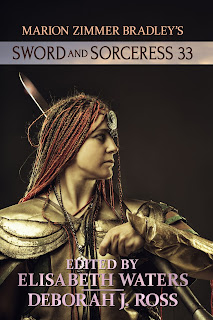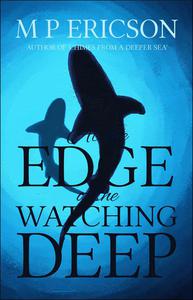Witchmark, by C.
L. Polk (Tor) is one of the most unusual and compelling love stories I’ve read
this year. The setting, very much like England in the throes of national PTSD
following the First World War, a magic-yielding aristocracy, a conflicted hero,
and so forth, are familiar enough to be recognizable, yet integrated into a
freshly imagined world.
A brutal war has
dragged on to end in a draconian peace. Men returning from the front are all
too often shattered in mind as well as body, although the effects of their
trauma are poorly understood. In our own world, WW I veterans were said to
suffer from “battle stress” or “shell shock,” and both were associated with
cowardice or lack of moral strength. In this world, however, some of them carry
a spiritual darkness within them, visible only to those with magical sight. One
such is our hero, working as a physician under an assumed name to escape the
enslavement of being a “second-class” magician. He alone makes a connection
between the dark presence and the reports of his patients that a mysterious he wants them to murder their loved
ones. Creating a metaphor for dissociation born out of guilt and trauma is one
of the things I love about fantasy. In this case the darkness is also a real,
separate thing, related to the retaliation plotted by the losing side in the
war, but again, I found myself wondering at the parallels between Polk’s
vengeful, decimated vanquished and the rise of the Nazi Party following the
Treaty of Versailles. One of the hallmarks of thoughtful fantasy is how it
invites us to look at our own world, our own lives, through new perspectives.
Witchmark, however, is not at all a diatribe about the root causes of war. It’s an
intensely personal story of a man who, fleeing one sort of persecution (the
exploitation of his magical talents), dedicates himself to healing and then,
without meaning to, gets caught up in increasingly larger crises. Through this
all, he forges a connection-of-the-heart with a man of another race, an Amaranthine,
this world’s version of Fae. Like Fae, they are immortal or nearly so, and are
said to be incapable to loving as humans do. All of this makes the slowly evolving
love story between Miles Singer and Tristan Hunter both tender and bittersweet.
The book has a lot
of different elements, from the murder mystery that launches the action to the
politics of the hospital where Miles works, to the aristocratic magic-wielders
who subjugate those of lesser talents, to the international politics, to the
bicycles criss-crossing the city. It would all be too much in the hands of a
less skillful author, but Polk introduces each aspect of the setting,
characters, traditions, and drama in such an easy, natural fashion, they all
fit effortlessly.















